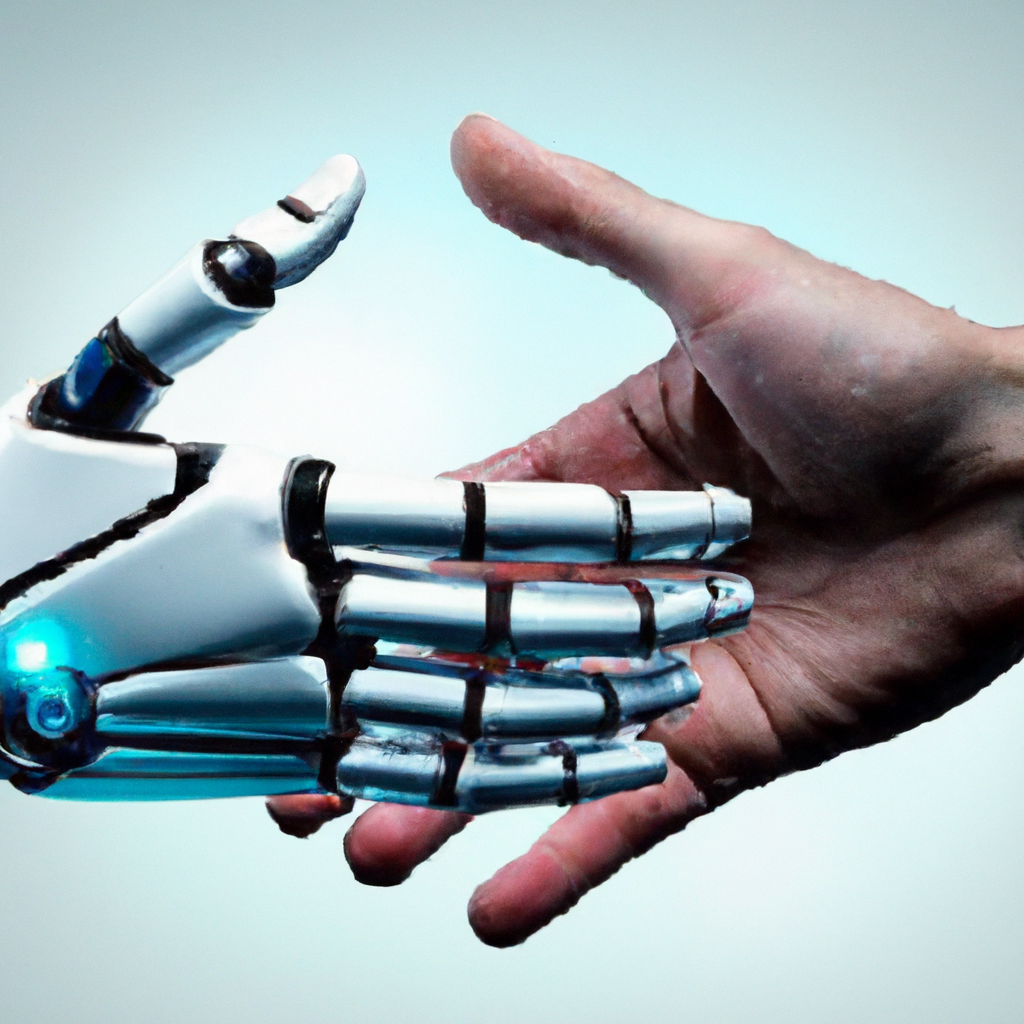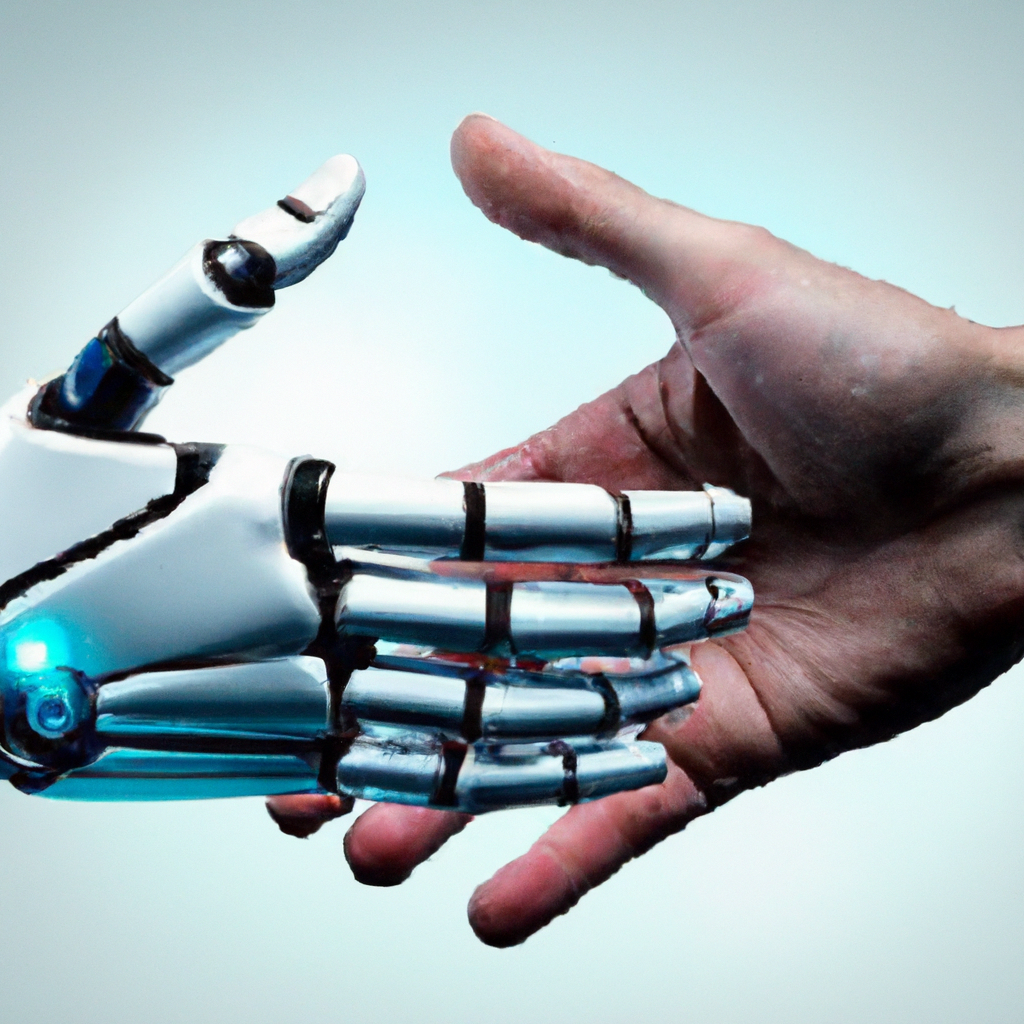How To Get A Job In AI

So you’re interested in pursuing a career in AI? Well, you’ve come to the right place! In this article, we’ll walk you through the steps on how to secure a job in the exciting field of artificial intelligence. From acquiring the necessary skills and education to networking with industry professionals, we’ve got you covered. Whether you’re a seasoned professional or just starting out, follow these tips and you’ll be well on your way to landing that dream job in AI.

Skills and Qualifications
Technical skills
When pursuing a career in AI, it is essential to have a strong foundation in technical skills. This includes proficiency in programming languages such as Python, R, or Java, as well as experience with data manipulation and analysis. Additionally, knowledge of machine learning algorithms and methodologies is crucial in this field.
Math and statistics
A solid understanding of mathematics and statistics is a fundamental requirement for AI jobs. Skills in areas such as linear algebra, calculus, probability, and statistical modeling are highly valuable. These skills enable data scientists to make accurate predictions and draw meaningful insights from complex datasets.
Critical thinking
AI professionals often encounter intricate problems that require creative and critical thinking to solve. Being able to analyze and evaluate different approaches is crucial for developing innovative solutions. Critical thinking skills help AI specialists assess the strengths and weaknesses of different algorithms or models and determine the most effective course of action.
Problem-solving
Problem-solving is at the core of AI work. Professionals in this field must not only identify and define complex problems but also develop strategies to solve them. An AI job may require implementing algorithms, optimizing models, or troubleshooting issues to ensure the desired outcome is achieved.
Analytical skills
Analytical skills are vital for extracting insights from data and interpreting the results of AI models. AI professionals need to possess the ability to identify patterns, trends, and correlations within large datasets. These skills enable them to make informed decisions and provide valuable recommendations based on the data at hand.
Programming
Proficiency in programming is a key skill for AI jobs. Familiarity with programming languages such as Python, R, or Java is essential for developing and implementing AI models. Additionally, knowledge of libraries and frameworks commonly used in AI, such as TensorFlow or scikit-learn, is beneficial for building robust and scalable solutions.
Machine learning
Machine learning is a fundamental aspect of AI, and having a solid understanding of various machine learning algorithms is essential. AI professionals should be familiar with supervised and unsupervised learning techniques, as well as deep learning approaches like neural networks. Knowledge of model evaluation methods and techniques for feature selection is also valuable.
Data management
Effective data management skills are crucial in AI jobs, as professionals need to clean, preprocess, and organize data before training models. Proficiency in SQL and database management systems is necessary for efficiently retrieving and manipulating data. Additionally, familiarity with cloud-based data storage platforms and distributed computing frameworks can greatly enhance data management processes.
Domain knowledge
Having domain knowledge in a specific field is advantageous for AI professionals. Understanding the context and nuances of a particular industry or problem domain enables AI specialists to tailor their solutions and make more informed decisions. Whether it’s healthcare, finance, or marketing, domain knowledge can greatly enhance the effectiveness of AI applications.
Creativity
Creativity plays a pivotal role in AI jobs. Professionals in this field need to think outside the box to find innovative solutions and overcome challenges. Being able to generate novel ideas, explore alternative approaches, and experiment with unconventional methods can lead to breakthroughs in AI projects.
Education and Training
Computer science degree
A degree in computer science provides a solid foundation for a career in AI. The curriculum typically covers essential topics such as algorithms, data structures, programming languages, and computer architecture. This degree equips individuals with the necessary technical skills and theoretical knowledge to excel in AI roles.
Statistics or mathematics degree
A degree in statistics or mathematics is highly valuable in the field of AI. These programs focus on mathematical modeling, statistical analysis, and probability theory, which are integral to AI work. Graduates with a background in statistics or mathematics possess strong analytical and problem-solving skills, making them well-suited for AI positions.
AI and machine learning courses
Taking specialized AI and machine learning courses can enhance your knowledge and skills in this field. Many reputable universities and online platforms offer courses that cover topics such as deep learning, natural language processing, and reinforcement learning. These courses provide hands-on experience and enable individuals to stay up-to-date with the latest advancements in AI.
Data science and analytics programs
Data science and analytics programs provide a comprehensive education in AI and its applications. These programs typically cover topics such as data visualization, predictive modeling, and data mining. They equip individuals with the necessary skills to extract insights from data and apply AI algorithms to solve real-world problems.
Online learning platforms
Online learning platforms offer a variety of AI courses and tutorials. Platforms such as Coursera, Udemy, and edX provide flexible and accessible options for individuals looking to acquire AI skills. These platforms often offer self-paced courses, allowing learners to balance their studies with other commitments.
Certifications
Obtaining certifications in AI demonstrates your expertise and commitment to the field. Certifications such as the TensorFlow Developer Certificate or the Microsoft Certified Azure AI Engineer Associate can validate your skills and make you stand out to potential employers. Additionally, industry-specific certifications, such as those in healthcare or finance, can showcase your domain knowledge.
Building a Portfolio
Personal projects
Undertaking personal AI projects is a great way to showcase your skills and creativity to potential employers. By working on self-driven projects, you can explore different AI techniques, solve real-world problems, and demonstrate your ability to develop and deploy AI applications.
Open-source contributions
Contributing to open-source AI projects allows you to collaborate with other professionals and gain exposure in the AI community. By actively participating in projects on platforms like GitHub, you can demonstrate your programming skills and problem-solving abilities, while also learning from experts in the field.
Kaggle competitions
Participating in Kaggle competitions provides an opportunity to test your skills in a competitive environment. Kaggle hosts machine learning competitions where participants solve complex problems using AI techniques. Involvement in Kaggle competitions allows you to gain practical experience, learn from top performers, and showcase your abilities to potential employers.
Research papers and publications
Publishing research papers and articles in AI-related journals and publications can significantly enhance your credibility and visibility in the field. By contributing to the academic community, you can establish yourself as an expert in a particular niche, demonstrate your ability to conduct rigorous research, and provide valuable insights to the AI community.
Internships and work experience
Internships and work experience in AI-related roles can provide valuable hands-on experience and industry exposure. Many organizations offer internships specifically aimed at individuals interested in AI. These opportunities allow you to apply your knowledge in real-world scenarios, work alongside experienced professionals, and develop practical skills that employers look for.
Data science hackathons
Participating in data science hackathons is an excellent way to showcase your problem-solving skills and collaborate with other AI enthusiasts. These events typically involve solving a specific problem within a limited timeframe, which helps develop your ability to work under pressure and deliver results. Hackathons also provide networking opportunities, as you can connect with professionals from various industries.

Networking and Professional Connections
Attending AI conferences and meetups
Attending AI conferences and meetups provides an excellent opportunity to network with industry professionals and stay up-to-date with the latest AI advancements. Conferences like NeurIPS and ICLR offer a platform to connect with leading researchers and practitioners in the field. Local AI meetups also allow you to network with professionals in your area and exchange ideas and insights.
Joining AI-related professional groups
Joining AI-related professional groups, either in-person or online, allows you to connect with like-minded individuals and stay connected with industry trends. These groups often organize events, webinars, and workshops that provide valuable learning and networking opportunities. Being part of such communities enables you to collaborate, share knowledge, and potentially find job opportunities.
Networking on social media
Social media platforms like LinkedIn and Twitter can be powerful tools for networking in the AI industry. Engaging with AI professionals, sharing relevant content, and participating in AI-related discussions can help you expand your network and establish connections with individuals and organizations in the field. Building an online presence demonstrates your passion and commitment to AI.
Participating in AI competitions and challenges
Participating in AI competitions and challenges, such as those hosted by Kaggle or AI-driven hackathons, allows you to connect with fellow participants and industry professionals. Collaborating on projects and sharing insights fosters networking opportunities and enables you to learn from others in the field. Additionally, excelling in competitions can bring recognition and open doors to job opportunities.
Engaging in online AI communities
Online AI communities, such as forums and discussion platforms, provide avenues to connect with AI enthusiasts and experts from around the world. Platforms like Reddit’s r/MachineLearning or Stack Overflow’s AI section allow you to seek advice, ask questions, and share knowledge. Engaging in these communities not only expands your network but also enables continuous learning and growth.
Seeking mentorship opportunities
Finding a mentor in the AI industry can provide invaluable guidance and support throughout your career journey. Mentors can offer insights, help refine your skills, and provide advice on navigating the job market. Networking events, professional groups, or online platforms can be avenues for finding mentors who can help shape your career in AI.
Job Search Strategies
Utilizing job portals and AI-specific job platforms
Utilizing job portals and AI-specific job platforms is an effective way to find AI job opportunities. Websites like Indeed, LinkedIn, or Glassdoor often list AI-related positions. Additionally, there are platforms specifically dedicated to AI job postings, such as AI-jobs.net or Kaggle’s job board. Be proactive in searching and regularly checking these platforms for new job openings.
Networking with professionals in the industry
Networking with professionals in the AI industry can significantly enhance your job search. Attend industry events, conferences, and meetups to connect with individuals already working in AI roles. Engaging in conversations, asking for advice, and showcasing your skills can leave a lasting impression and potentially lead to job opportunities.
Directly contacting AI companies
Research and identify AI companies that align with your interests and career goals. Take the initiative to reach out to these companies directly, expressing your interest and highlighting your qualifications. Even if there are no current job openings, expressing your enthusiasm and passion for their work may lead to future opportunities or referrals.
Applying to AI startups
AI startups often offer exciting job opportunities and provide an environment for innovation and growth. Research and identify AI startups that align with your interests, values, and skills. Apply directly through their websites, job portals, or reach out to them through networking contacts. Startups are often open to hiring individuals who possess passion, drive, and an entrepreneurial mindset.
Attending career fairs and AI recruiting events
Attending career fairs and AI recruiting events provides a platform to directly interact with recruiters from various organizations. These events are an opportunity to showcase your skills, learn about job openings, and make a positive impression. Remember to come prepared with your resume and any relevant portfolio materials.
Leveraging university career services
If you are a student or recent graduate, leverage the resources provided by your university’s career services department. They often have valuable connections with industry professionals and can assist with resume reviews, mock interviews, and job search strategies specifically tailored to AI roles. Take advantage of these resources to increase your chances of landing an AI job.
Crafting an AI-Focused Resume
Highlighting relevant skills and qualifications
When crafting an AI-focused resume, highlight the technical skills and qualifications that are relevant to the position you are applying for. Tailor your resume to emphasize your proficiency in programming languages, machine learning techniques, data analysis, and problem-solving abilities.
Emphasizing AI-related projects and experience
Highlight any AI-related projects or experiences you have worked on. Provide details about the problem you solved, the techniques you used, and the results you achieved. Describe the impact of your work and showcase relevant metrics, such as improved accuracy or efficiency.
Including relevant certifications and courses
Include any relevant certifications and courses you have completed in the AI field. List them prominently on your resume to demonstrate your commitment to continuous learning and skill development. Relevant certifications can boost your credibility and make you stand out among other applicants.
Using appropriate keywords and industry terms
Tailor your resume using appropriate keywords and industry terms that are commonly used in AI job descriptions. This shows employers that you are familiar with the field and its terminology. Be careful not to misrepresent your skills or overuse buzzwords, as recruiters value genuine expertise.
Showcasing problem-solving and analytical abilities
Highlight your problem-solving and analytical abilities. Describe how you have solved complex problems or optimized AI models. Provide examples that demonstrate your ability to think critically and strategically when faced with challenging tasks.
Quantifying achievements and impact
Where possible, quantify your achievements and the impact of your work. Numbers and metrics help recruiters understand the tangible value you can bring to their organization. Highlight any improvements or efficiencies you have achieved through your AI-related projects or experiences.
Preparing for AI Job Interviews
Studying common AI interview questions
Preparing for AI job interviews requires studying common interview questions specific to the field. Practice answering questions about machine learning algorithms, data preprocessing techniques, model evaluation methods, and ethical considerations in AI. Be prepared to explain your thought process and demonstrate your ability to apply AI concepts to real-world scenarios.
Reviewing fundamental AI concepts and algorithms
Review fundamental AI concepts and algorithms to ensure you have a solid understanding of the basics. Brush up on topics such as supervised and unsupervised learning, neural networks, natural language processing, and reinforcement learning. Understanding the underlying principles will enable you to discuss and apply these concepts during interviews.
Demonstrating knowledge of AI applications in real-world scenarios
Showcase your knowledge of AI applications in real-world scenarios. Be prepared to discuss how AI can be applied to specific industries or domains, such as healthcare, finance, or e-commerce. Demonstrate your understanding of the potential benefits and challenges associated with implementing AI technologies in different contexts.
Practicing coding and problem-solving skills
Practice coding and problem-solving skills to ensure you are well-prepared for technical interview questions. Familiarize yourself with common programming languages used in AI, and write code to solve AI-related problems. Practice thinking through problem-solving strategies and discussing your approach to finding solutions.
Preparing examples of past AI projects and experiences
Prepare examples and anecdotes that showcase your past AI projects and experiences. Be ready to discuss the challenges you faced, the techniques you employed, and the outcomes you achieved. Having concrete examples will help you illustrate your skills, problem-solving abilities, and the impact you can make in an AI role.
Researching the company and its AI initiatives
Before an AI job interview, research the company and its AI initiatives. Familiarize yourself with their current projects, products, or research areas. Understanding the company’s goals and priorities will allow you to align your answers and demonstrate how your skills can contribute to their AI initiatives.
Internships and Entry-Level Positions
Seeking internships to gain practical experience
Seeking internships in AI-related roles can provide valuable practical experience and industry exposure. Internships allow you to apply your knowledge, develop essential skills, and gain insights into the day-to-day workings of AI teams. Look for internships that offer hands-on opportunities to work on real-world projects and collaborate with experienced professionals.
Applying for entry-level AI positions
Applying for entry-level AI positions can be a great way to kickstart your career in the field. Look for job openings that specifically target recent graduates or individuals with limited professional experience. Highlight your relevant coursework, personal projects, and internships to demonstrate your enthusiasm and potential in AI.
Leveraging university career services for internships
Utilize your university’s career services department to find AI internships. They often have connections with companies that offer internships in AI-related roles. Work closely with career advisors to tailor your resume and cover letter to match internship requirements. Leverage their expertise in connecting with potential internship providers.
Building industry connections through internships
Internships provide opportunities to build industry connections and expand your professional network. Connect with colleagues, supervisors, and other professionals you meet during your internship. Maintain these connections and keep them informed about your career goals. Building relationships with industry professionals can lead to future job opportunities or referrals.
Using internships as stepping stones for higher-level roles
Consider internships as stepping stones for higher-level roles in AI. Treat your internship as an opportunity to learn and grow, showcasing your skills and dedication. Make a positive impression through your work ethic, problem-solving abilities, and collaborative mindset. A successful internship can open doors to full-time positions within the organization or pave the way for future job opportunities.
Gaining hands-on experience in AI projects
Internships and entry-level positions offer hands-on experience working on AI projects. Embrace the opportunity to work with real-world data, apply cutting-edge algorithms, and gain exposure to industry best practices. By actively participating in AI projects, you can develop practical skills and demonstrate your ability to contribute to real-world solutions.
Continuous Learning and Professional Development
Staying updated with AI advancements and trends
AI is a rapidly evolving field, and it is crucial to stay updated with the latest advancements and trends. Follow industry publications, academic journals, and reputable blogs to learn about new algorithms, breakthroughs, and emerging AI technologies. Stay connected with the AI community through social media platforms and online forums to stay abreast of the latest developments.
Participating in workshops and conferences
Participating in workshops and conferences provides valuable opportunities to learn from industry experts and network with like-minded professionals. Attend conferences, workshops, and webinars that focus on AI topics and applications. Engage in discussions, ask questions, and take advantage of the learning opportunities to deepen your AI knowledge.
Continuously improving programming and analytical skills
Continuous improvement of programming and analytical skills is essential in AI. Practice coding exercises, participate in coding challenges, and work on AI-related projects to hone your programming skills. Additionally, stay up-to-date with new libraries, frameworks, and tools that can enhance your analytical capabilities.
Exploring new AI tools and technologies
Be proactive in exploring new AI tools and technologies. Experiment with different libraries, frameworks, and platforms to broaden your skillset and stay ahead of industry trends. Familiarize yourself with cloud-based AI services, automated machine learning platforms, or specialized AI tools that offer unique capabilities.
Expanding domain knowledge in specific use cases
Consider expanding your domain knowledge in specific use cases. AI is increasingly being applied in various industries, from healthcare to finance to marketing. By gaining a deeper understanding of specific domains, you can tailor your AI solutions to meet industry-specific challenges and requirements.
Pursuing advanced degrees or certifications
For individuals seeking career advancement in AI, pursuing advanced degrees or certifications can be beneficial. Advanced degrees, such as a Master’s or Ph.D. in AI or related fields, provide in-depth knowledge and research opportunities. Additionally, specialized certifications, such as those offered by reputable institutions or organizations, can validate your expertise and demonstrate your commitment to professional development.
Building a Strong Online Presence
Creating an AI-focused LinkedIn profile
Creating an AI-focused LinkedIn profile is essential for building a strong online presence. Highlight your AI skills, projects, and experiences in your profile. Connect with professionals in the field, join AI-oriented groups, and actively engage in discussions to expand your network and increase your visibility within the industry.
Contributing to AI-related blogs and publications
Contributing to AI-related blogs and publications provides a platform to share your expertise and insights with the AI community. Write blog posts on AI topics, submit articles to relevant publications, or leverage platforms like Medium to reach a wider audience. Sharing your knowledge and experiences can help establish yourself as a thought leader in the field.
Sharing AI projects and insights on social media
Utilize social media platforms to share your AI projects, insights, and thought-provoking articles or research papers. Regularly share updates on your work, comment on industry news, and engage with other professionals in the field. Building an active presence on social media helps broaden your network and increases your chances of being noticed by potential employers.
Building a personal website or portfolio
Creating a personal website or portfolio is a great way to showcase your AI projects, publications, and achievements. Displaying your work in a visually appealing and easily accessible manner allows potential employers or collaborators to learn more about your expertise. Include your contact information and links to your social media profiles for seamless networking.
Documenting AI-related expertise and experiences
Document your AI-related expertise and experiences on platforms like GitHub, Kaggle, or other code-sharing repositories. Make your work publicly available for others to learn from and collaborate on. Use these platforms as portfolio references during job interviews or when sharing your work within the AI community.
Engaging with the AI community through online platforms
Engage with the AI community through online platforms such as forums, Slack channels, or Discord servers. Participate in discussions, ask questions, and share your knowledge. Actively contribute to the community by providing helpful insights or solutions. Meaningful engagement helps you establish yourself as a valued member of the AI community.






